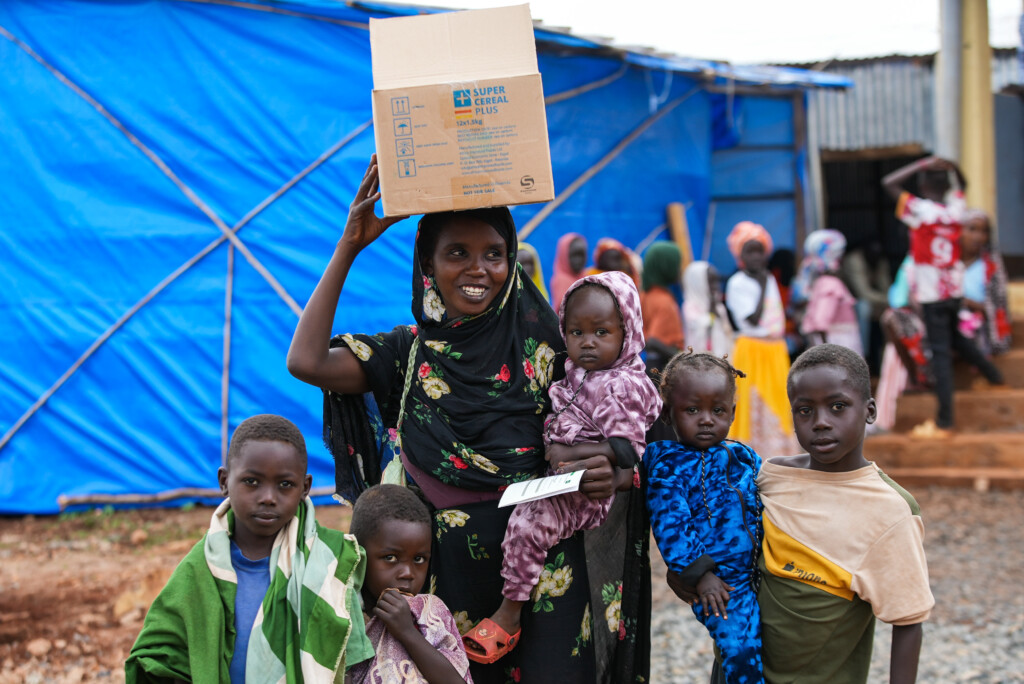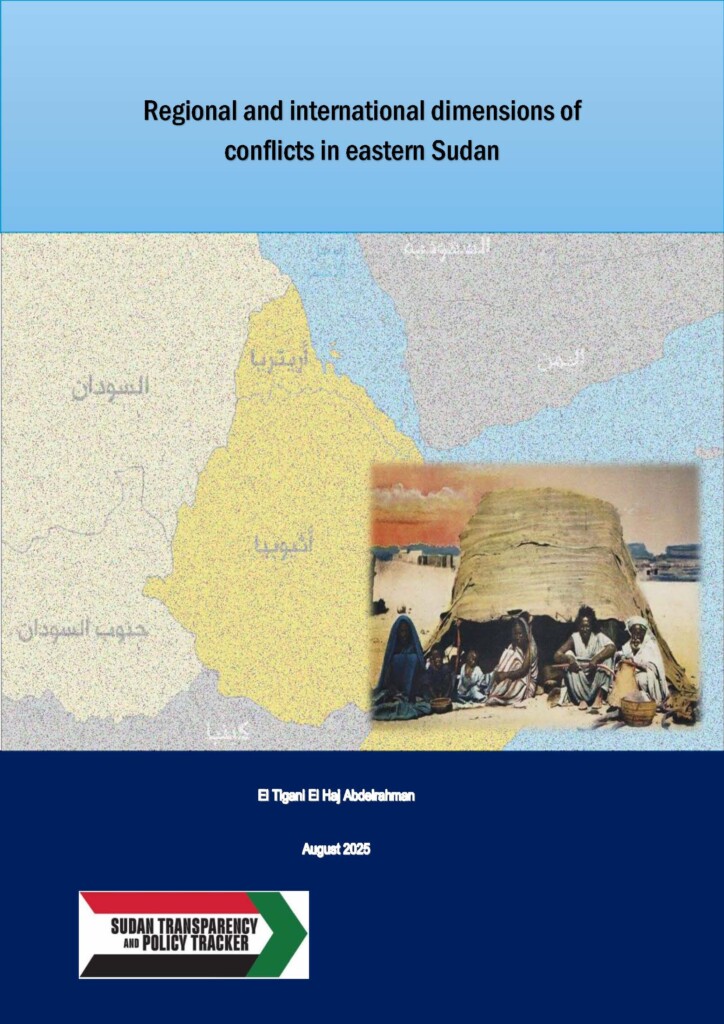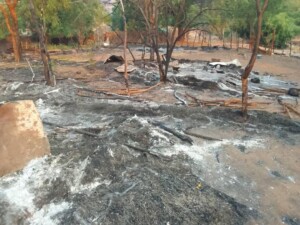STPT: Regional and international dimensions of conflicts in eastern Sudan

A Sudanese mother and her children at a health post in Ura Refugee Camp, in Ethiopia’s Benishangul-Gumuz Region (File photo: WFP/Michael Tewelde)
By El Tigani El Haj Abdelrahman / Sudan Transparency and Policy Tracker (STPT)
International and regional interventions in Sudan are not new; they are rooted in a complex web of historical relations ties and strategic interests linking Sudan with its neighbours. These relationships and interests change over time in response to shifting political dynamics and regimes across the region. Substantial evidence suggests that Eritrea, in particular, has maintained a deep influence over Sudanese affairs, especially in the east, where the two countries share a border of over 600 kilometres and a notable population.
In his report for Sudan Transparency and Policy Tracker (STPT) published on August 11, entitled Regional and international dimensions of conflicts in eastern Sudan, Prof El Tigani El Haj Abdelrahman outlines international dymanics that are at play in the ongoing conflicts.*
Eritrea’s strategy of intervention in Sudanese affairs is intimately connected with its relationship with Ethiopia, from which it gained independence in 1993 and with which it shares intricate demographic and cross-border ties. Eritrea played a key role in the war between Ethiopia’s northern Tigray region and the federal government. Thus, the problems facing the Horn of Africa countries are interconnected. Eritrea is located at the centre of the Horn of Africa, squeezed between two big countries, Sudan and Ethiopia, and cannot engage in conflicts with both countries simultaneously. The intricate relations between the Eritrean regime and social and political actors in eastern Sudan can therefore be explained within Eritrea’s strategy of preventive penetration in eastern Sudan to preserve its own internal unity. The same logic applies to its relationship with Ethiopia. Be that as it may, the danger of this strategy is that it can cause major conflicts and rifts within the communities of these countries, particularly in eastern Sudan. The training, armament, and logistical support provided by Eritrea to ethnic armed groups in eastern Sudan, coupled with the militarisation policies adopted by the Sudanese Armed Forces (SAF), could lead to the outbreak of large-scale, cross-border conflicts among ethnic groups in eastern Sudan, which could in turn eventually pose security threat to the countries of the Horn of Africa and the Red Sea Basin.
The ongoing war in Sudan has undergone major shifts, with significant domestic and regional repercussions. According to multiple news sources, between 4 and 7 May 2025, the Rapid Support Forces (RSF) carried out a series of drone attacks on Port Sudan and other cities in eastern and northern Sudan. The strikes hit vital facilities and strategic sites in the city, including fuel depots, the main power station, an ammunition depot, and Osman Digna airbase causing significant material damage. The attacks represent a dangerous qualitative shift in the trajectory of the war, significantly altering the war strategy and the balance of power between the two warring parties by allowing the RSF to assert that it can threaten territories even very far from its base. The effects of these attacks will transcend eastern Sudan, and may even extend to neighbouring countries, and the entire sub-Saharan African belt.
Considering the evolving nature of the 15 April war in Sudan, this paper investigates its impact on eastern Sudan by examining the roles of the neighbouring countries, Eritrea, Ethiopia, and Egypt as well as the Gulf states such as Saudi Arabia (KSA) and the United Arab Emirates (UAE) in addition to Iran, Russia, and Ukraine. The prominence of tribal militia and the proliferation of weapons in eastern Sudan are already increasing. The war has the potential to spread not only within eastern Sudan, but to spill over across national borders, given the significant connections between the regions of eastern Sudan and neighbouring countries. The paper also examines the geopolitical dimensions of regional and international interventions on both sides of the war – the SAF and the RSF – to serve their own interests in Sudan, the Horn of Africa, and the Red Sea regions.
The research followed a descriptive-analytical approach using qualitative key informant interviews (KII). The researcher conducted 10 in-depth interviews with influential figures from eastern Sudan, selected based on their broad knowledge of the dynamics there. The research relied on various sources of information, including previous writings, open sources, reports, and periodicals. The information gathering process, particularly the interviews, faced challenges due to the deteriorating security situation, which was reflected in the participants’ reactions; restrictions on movement and assembly; strict security surveillance imposed by the authorities; and communication difficulties.
*This article was updated on 14/08/2025 00:30 to correctly reflect, credit, and link to the original report.












 and then
and then